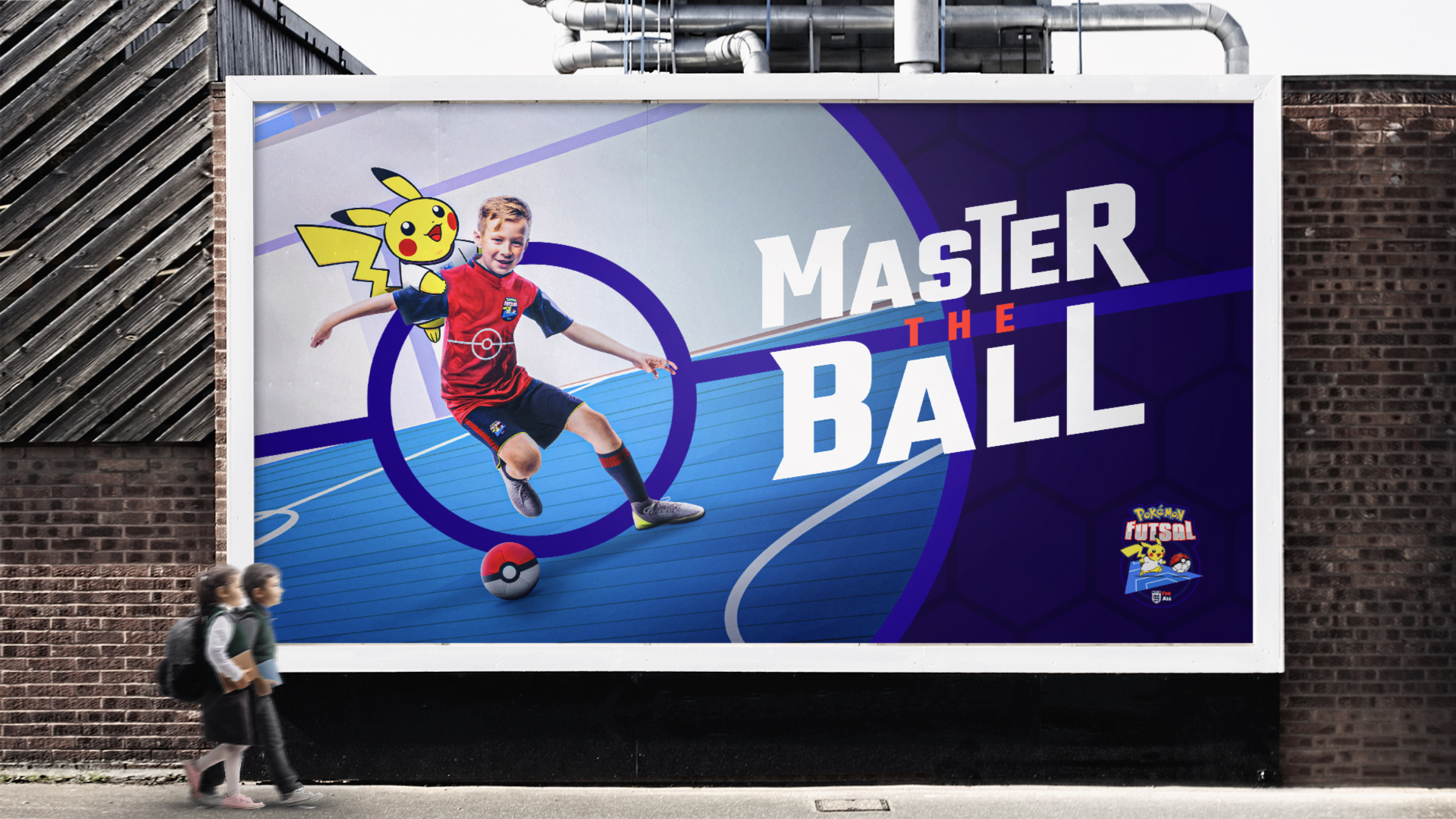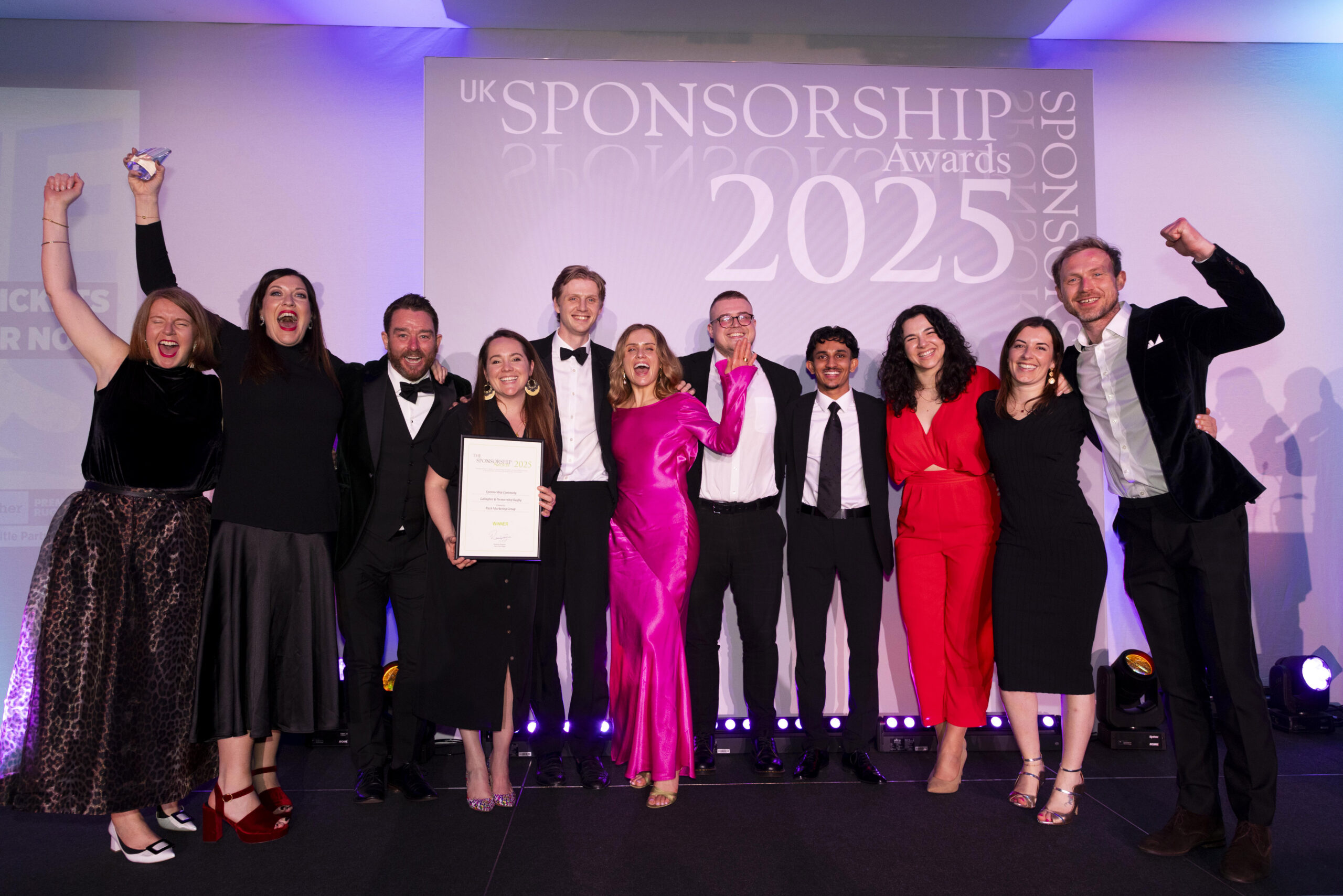Few things compare to the raw emotion of sport. Whether it’s the nervous excitement of simply watching it, the joy of seeing your team scrape a last minute victory, or the crushing heartbreak of a near miss or defeat, there’s nothing quite like getting lost in the passion of sport. Just look at some of these clips for proof.
It’s no wonder that the global sports industry is worth an estimated $600-700 billion, as hundreds of millions of us globally pour money into watching sporting spectacles, whether live or from afar.
Because of this, sports sponsorship is naturally an incredibly attractive prospect for both brands and those in sport. In fact, sports and sponsorship have become so synonymous that many sports marketing campaigns are just as ingrained in public consciousness as the most famous games and competitions, from Pelé’s pause for Puma in the 1970 World Cup, to Nike’s Secret Tournament in 2002, Elvis tune and all.
But what is sports sponsorship exactly and how can it be so beneficial to the parties involved?
What is sports sponsorship?
Sports sponsorship is the financial support of a sport by an outside body for the mutual benefit of both parties. Those that are typically sponsored include:
- Individuals, like athletes or coaches
- Organisations, like teams or leagues
- Events, from illustrious tournaments like the Super Bowl to amateur competitions
Meanwhile, any kind of outside body can be a sponsor, though it’s usually commercial companies that take up this mantle. If we refer back to the examples given above, then Puma and Nike are the sponsors, and Pelé and the various footballers that featured in the Secret Tournament ad are those being sponsored.
The different types of sports sponsorships
How exactly a sports sponsorship works in practice depends on who is being sponsored and the level of funding involved. For example, individual athletes might be sponsored to wear or endorse particular products while playing or during dedicated commercial appearances. Whereas teams may be sponsored to do things like display brand banners around their stadium or even change their stadium’s name altogether to incorporate the brand.
Sports sponsorship occurs at every level of sport — even school sports teams are often sponsored by local companies. However, it is most associated with top-level sports thanks to the widespread exposure of such sponsorships.
What are the advantages of sponsorship for those in sport?
From the point of view of the athlete, organisation or event being sponsored, the main benefit to sports sponsorship is financial, although such sponsorships can work to raise their profiles too.
Individuals
For high-level athletes, sports sponsorship can see them generate serious profit. Take Roger Federer, for instance, whose deal with Uniqlo will reportedly see him earn $300 million over ten years. When it comes to more low-profile performers, sports sponsorship deals may see the sponsoring company pay for things like their kit, equipment and travel costs.
Organisations
Again, top-level teams and leagues can earn eye-watering figures from sports sponsorships. Here in the UK, six English Premier League teams make £40 million or more a year from their shirt sponsorship deals alone, which sees them wear kits donning the sponsor brands’ logos. For smaller teams and clubs, sponsors may also pay for kit and equipment, as well as things like ground maintenance.
Events
Events sports sponsorship will cover expenditures like venue hire, hospitality, catering, publicity, programmes and officials’ costs. Notable examples of event sports sponsorship include brands such as Coca-Cola, Samsung and Visa sponsoring the Olympics, and the likes of Rolex, Slazenger and Ralph Lauren sponsoring the Wimbledon Championships.
What are the advantages of sponsorship for brands?
From a brand’s perspective, the advantages of sports sponsorship are a little more nuanced. Some of the main ones include:
Increased brand awareness
Sport has an enormous audience base, making sports sponsorship a great way for brands to put themselves in the spotlight in front of millions of potential customers. This increased brand awareness can help brands make more sales, leading to higher profits. One study found that athlete endorsements generate a 4% increase in sales on average, demonstrating just how effective a marketing tool sports sponsorship can be.
Improved brand image
By creating positive brand associations with popular sports teams, athletes and events, sports sponsorships can help to improve a brand’s reputation. While this benefit is more intangible on the face of things, it can ultimately lead to tangible benefits like rising sales, increased brand loyalty and greater outside investment.
A case in point here is Barclays, which sponsored the Premier League for 15 years. According to a study, the company’s sponsorship of the competition improved brand trust by 28%.
Building community relationships
Particularly when sponsoring lower level teams, athletes and events, sports sponsorship can be a great way of building relationships in the community. By directly contributing to the success of local talent and showing that they care about their communities, brands can again endear themselves to potential customers and in turn enjoy more sales.
Supercharge your sports sponsorship efforts today
With all the above benefits, it’s no wonder that so many businesses invest in sports sponsorship. Pitch can help your own brand supercharge its sports sponsorship efforts through our dedicated service. Relying on data-driven insights and our extensive experience in sports sponsorship, we have helped some of the world’s biggest brands achieve huge traction through the power of sport, from Hyundai and Tag Heuer, to LG and cinch.
Check out more of our work here and feel free to contact us to find out more about what we do, or to make an enquiry.






